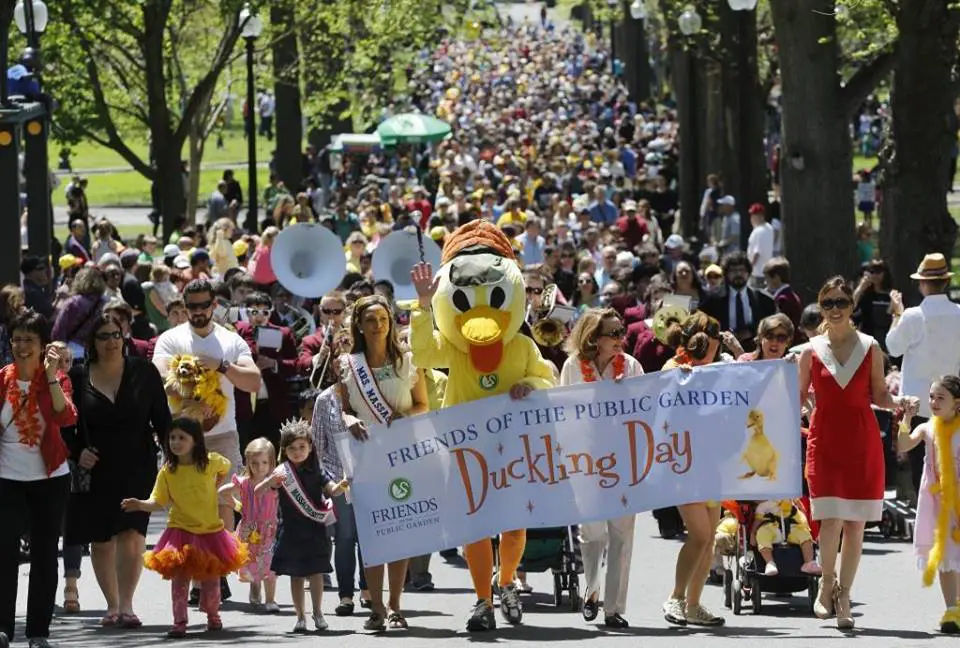
Content warning: This post discusses pregnancy and infant loss.
Today is the first anniversary of the worst day of my life.
On this day last year, I announced on social media that my baby had been born but was not alive. I wanted to make it public before anyone asked if I was still pregnant. I asked everyone to leave me alone so I could grieve without interruption.
The grieving will never stop, but I don’t need to be left alone anymore. His name was Shia, and we’d be celebrating his first birthday today, August 29.
Let’s talk about infant loss
I thought I was doing myself and everyone else a favor by removing my baby from the conversation, but I was really just pushing his memory further away. I won’t forget him, and I don’t want anyone else to. Death may be a hard subject to initiate and conquer, but we need to start trying. People of all ages die every day, have funerals that nobody’s surprised about, and are mentioned now and again in passing. But talking about dead babies is somehow taboo.
Babies die all the time, whether it’s at six weeks gestation or six months after birth. I had no idea it was so common. I was shocked. I didn’t believe it could happen to me because I thought there was only a miniscule chance of it happening to anyone.
Know that the chance is quite great. Know that one in four people — the people you know, the people at the grocery store, and the people who’ve walked by you today — have lost a baby. You might think that those who haven’t had children yet or are currently pregnant shouldn’t know these statistics because it might give them anxiety. But we didn’t always live in a society that swept dead babies under the rug.
We used to have grandmothers who’d given birth ten times but only had seven living children. We used to feel relieved and blessed when our babies were born alive and made it to their first birthdays. Now, we think we’re untouchable, and we take it all for granted because we believe doctors and modern medicine can save us. It’s not so, and we deserve to know how very, very lucky we are to hear our baby’s first cry, watch them reach all their milestones, and form bonds with them as they grow. None of that is guaranteed.
Everyone handles grief differently — your job is to listen
Know also that most people don’t deal with the loss of a baby the way I did. Know that most who’ve lost a baby want your attention, comfort, support, help, company, conversation, and for you to talk about the baby. Know that they’ve felt deathly hollow and cold inside, yearning for something irreplaceable, not wanting to continue living, feeling useless and pointless, believing they’re alone in this unending pain. Know that you can help. They deserve to know they are not alone. They need the village that used to be a birthright but is now so separated and sparse.
Know that people tend to keep their pregnancies a secret until 12 weeks so that if they miscarry early, no one will know. They won’t tell anyone. They will suffer alone, feeling like they have failed or that their body has betrayed them. They will hide in this shame, thankful they told no one so no one else will see them as they see themselves: a worthless person with a worthless womb. All this because we treat dead babies as unwanted, awkward, terrible topics of conversation. All this because we are uncomfortable witnessing people grieve.
Thanks to online communities rich with support, I’ve connected with and read the stories of thousands of people who’ve experienced stillbirths. I haven’t heard a single person say they felt fully supported, fully understood, or fully cared for following their loss, unless they have a very close friend or relative who has lost a baby, too.
I have heard countless horrible stories of the way society gets itchy and uncomfortable when the lost baby is mentioned. I’ve heard instances where the closest of loved ones pretend the baby never happened at all, as though the baby was never named and expected and planned for and loved and wanted.
If the parents or the siblings of this baby want to say the baby’s name, talk about the baby’s birth, talk about the what-ifs and if-onlys, and show you pictures, please choose to conquer your discomfort for their sake.
This is a public service announcement: When someone is trying to talk about the baby they lost, just sit down and listen.
If you have beautiful words of comfort, such as, “I’m here for you. I hear you. I can only try to imagine what you’re going through. I want to help in whatever ways I can. Can I hug you? Can I bring you doughnuts and coffee? I left a basket of goodies and distractions on your front porch. Do you want me to come sit on your couch with you and you can tell me all about [insert baby’s actual name here]? If your partner is going back to work, can I come hang out with you tomorrow? Pick out your favorite stillbirth keepsake on Etsy — I’ll order it for you,” then by all means, say them all and then listen.
But if you think of saying anything like, “At least you know you can get pregnant. You could always have another baby. Don’t sit in your grief; try to move on. Find the silver lining. Look on the bright side. Think positively. Don’t dwell on what happened. The pity party won’t help. It wasn’t meant to be. Maybe now just wasn’t a good time to have a baby,” please hold your tongue and rethink your reaction.
Look for ways to show up for those who are suffering
Know that the hardest time after losing a baby, at least from my experience, is when the body is still healing after the birth. The body doesn’t know that the baby it just spent so much time and energy growing is dead. The body is misshapen, bleeding, aching, and throbbing. Hormones are still doing all the things they’d do if there was a living baby, so they’ll make the person feel crazy and lost to themselves on top of the grief and confusion over the loss of their baby. The body still starts to make milk to keep the baby alive, even though the baby’s dead. It hurts. Everything hurts. Literally every single thing inside and out hurts. It is hell.
Know that if you can show up, be present, hold space, give love, and support your friend, sibling, coworker, neighbor, playgroup acquaintance, employee, boss, in-law, cousin, or random long-lost friend in your Facebook feed while they’re freshly postpartum after a loss, you are doing something that most people cannot or would just rather not do. They need you, whether they say, “Please leave me alone” or not. They need something. Anything.
Ask for their address and send an edible arrangement. Drop off some adult coloring books, a gift card for some online retail therapy, a random kit of crafting supplies, a journal full of random prompts so they can think about other things, or an assortment of sweets. Send a card full of quotes about grief and loss and love and hope. Tell your story of loss, whether it was your own baby, your grandmother’s, or your favorite cousin’s — without trying to say you know how they feel or that their grief could be worse. Just tell them so they know you’re someone who might understand if they were to open up and tell you their horror story of loss and grief.
If you’re close enough to them, offer to go help pack away the nursery items. Offer to do the dishes and laundry. Offer to pick up groceries. Offer to take the older kids for a couple of days or more. Offer literally anything and everything you can think of, and if they say they just need to be left alone, see the previous paragraph and do one of those things. Don’t leave them alone.
Just before my due date with Shia, I found a local teenager to give my older son guitar lessons. After the baby died, I warned his mother about what happened so her son wouldn’t be confused. Without knowing me, without hesitating, and without any awkwardness, she offered to bring me coffee and sit on the porch with me. Initially, my reaction was, “Heck no,” but then I felt myself needing exactly what she was offering. She came over with coffee, pastries, a delightful essential oil roller, and the softest blanket I’ve ever owned. She told me about the losses of her brother and her father, shared how strong her mother is, and talked about her life. She listened while I told her what happened, how I was handling it, how my family was handling it. She listened. She had an enormous impact on making me feel less alone, and I will never forget it.
The next best things anyone did for me after the loss: My ex took our two kids for a week and a half so they wouldn’t have to see me curled up, moaning and crying for my baby. My sister sent me a ton of clothes so I could put away all my pre-pregnancy and maternity clothes and start fresh. My sister did her research and read about how to handle someone else’s grief after they’ve endured a stillbirth. My best friend, my midwife, my sister, and my grandmother just listened, reminded me that it wasn’t my fault, listened some more, and let me know they’d always be available to listen.
Consider the trauma of a pregnancy after a loss
Finally, please keep in mind the difficulty of a pregnancy that happens after a miscarriage or infant loss. If you’ve had any kind of traumatizing experience, you know there is nothing more terrifying than the thought of it happening again. You know that doing the same things or being in the same place where it happened the first time brings up immense fear and anxiety. Now, try to imagine putting yourself in that same place with the same situation and circumstances, but for 40 solid weeks straight. And the outcome is either going to be life or death. Can you imagine? It’s utterly terrifying.
So, here are a few things to say to people who are pregnant again after a loss: “Congratulations, but I know this must be so scary. I’m here for you if you need to talk about it. I know this baby won’t replace [insert lost baby’s name]. It’s going to be a long, bumpy road, but I’m here for you. Let me know when you feel ready to go shopping for new baby stuff — I’ll come with you. Keep me updated on all your pregnancy milestones! Let’s celebrate each one! I’m here for you no matter what happens.”
And then make sure you listen. It may be really hard to listen to. You naturally want the person to feel safe and excited, and when you realize they’re feeling immense guilt for “replacing” their lost baby, fear of the same thing happening again, not knowing whether they can survive the same thing happening again, and deep, dark doubt, you’re going to feel crushed. Nothing you say can fix this for them. Just listen, and let them know you’re there.
Things not to say to people who are pregnant again after a loss: “Now you can finally heal from your loss. This baby will fill the void left by the baby you lost. Now your family will finally be complete. At least you don’t need any new baby stuff! Guess you don’t need another baby shower! Stay positive. Don’t dwell on your loss. Don’t worry about having another loss, it’ll be fine. You’re just lucky you could get pregnant again.” All this does is dismiss their pain, make them feel a little bit crazy, and raise the chances that they’re going to shut you out of their life for the rest of the pregnancy.
Please — reach out
I initially closed myself off to spare everyone the discomfort of having to deal with my loss, but I was only perpetuating the problem of keeping pregnancy and infant loss hush-hush. Please, reach out if you feel called to. And reach out to someone else who has lost their baby. You’ll never know how important your love and support might be to someone who is grieving.

Hannah is a homeschooling mother of 10 years, a pregnancy and infant loss survivor, and a passionate postpartum and bereavement doula. She has two redheaded children, a baby in the stars, and a rainbow on the way. Hannah now lives in New Hampshire with her high school sweetheart/husband. Her story of hardship and healing is no different than yours, she’s just trying to make light of her darkness so that you might feel less alone in yours.












